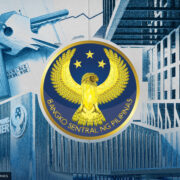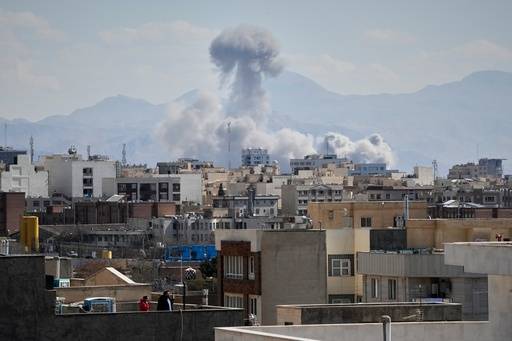Campus Talks: Powering sustainable development
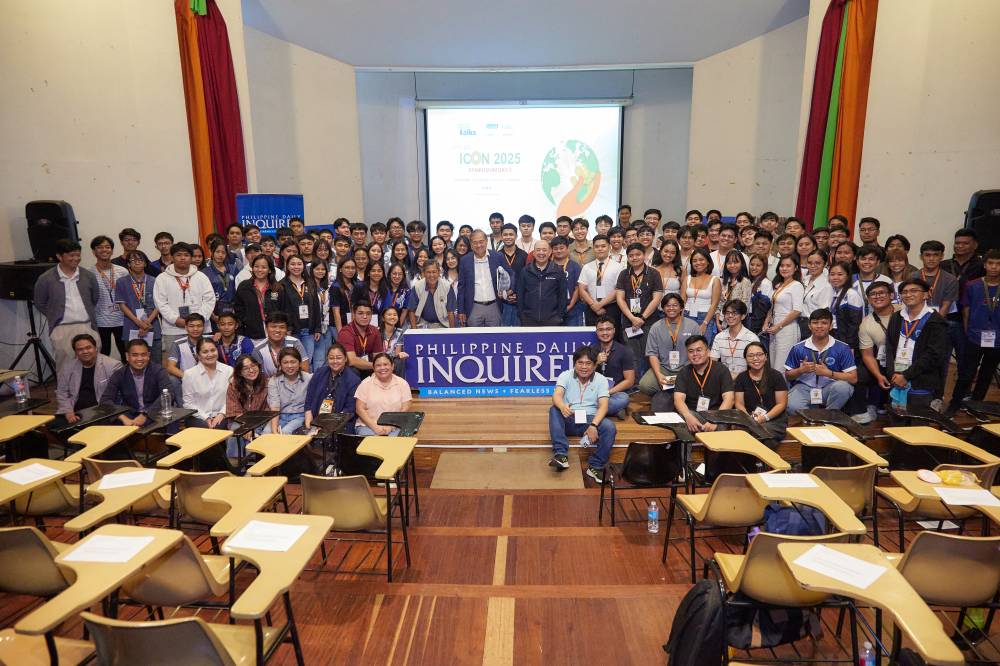
In an archipelagic country like the Philippines, with more than 7,000 islands in its territory, the way forward in addressing energy shortages, high costs and unequal access is to decentralize generation and distribution.
“Centralized is so obsolete,” said lawyer Pedro Maniego Jr., senior policy advisor of the Institute for Climate and Sustainable Cities and chair emeritus of the Energy Lawyers Association of the Philippines. He proposed a shift from “centralized to distributed generation” of energy.
Maniego and Suiee Suarez, vice president for corporate affairs of Aboitiz Power Corp., were the resource persons at the recent session of the Inquirer’s Campus Talks, a discussion series that provides a venue for students to engage personally with professionals and experts in their fields of interest.
The series recognizes the significance of real-world exposure in shaping students’ aspirations.
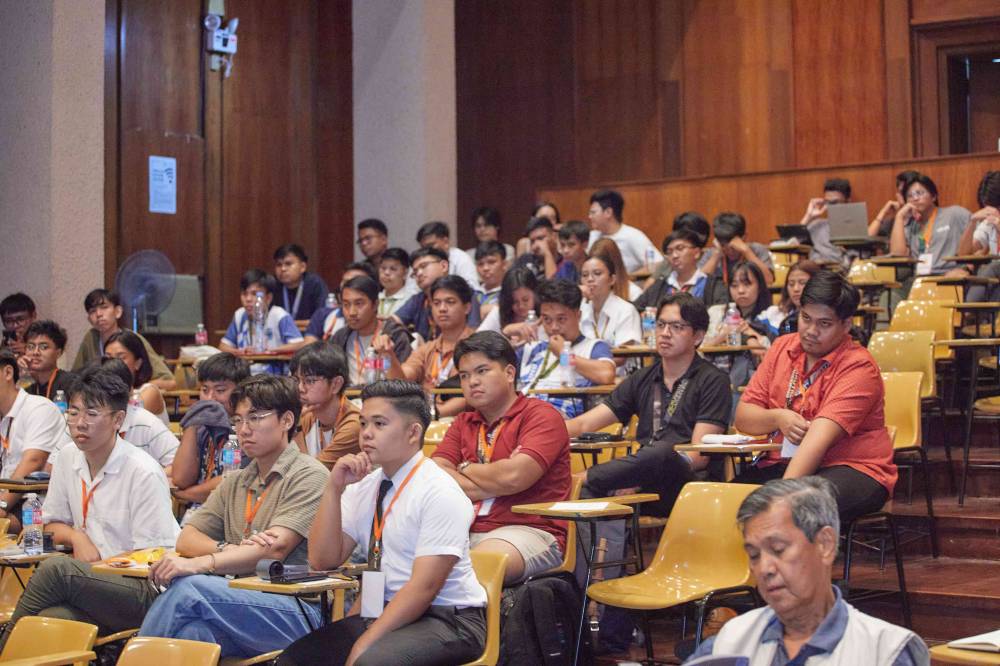
Held at the Melchor Theater of the University of the Philippines-Diliman (UP) College of Engineering, the latest session on the theme “Innovative Engineering for Sustainable Industry and Infrastructure” on May 9 was attended by engineering students from UP Diliman, UP Los Baños, Mariano Marcos State University, FEU Institute of Tech and PATTS College of Aeronautics.
Maniego said that instead of installing long transmission lines, communities might be better served by self-contained energy-generating facilities that would be “flexible, cheaper, reliable, predictable, clean and indigenous” (i.e. locally-sourced renewable energy).
Maniego, a fellow and 2024 chair of the Institute of Corporate Directors, pointed out that in a country like the Philippines, which is visited by natural disasters several times a year, “it takes billions to restore power after a calamity.”
This added to the high cost of energy in the country, one of the highest in the Association of Southeast Asian Nations or Asean region, if not in the entire Asia.
For instance, instead of aspiring to connect “missionary areas” (remote areas where providing basic electricity service is not commercially viable) to large grids, self-contained community renewable energy systems could be set up.
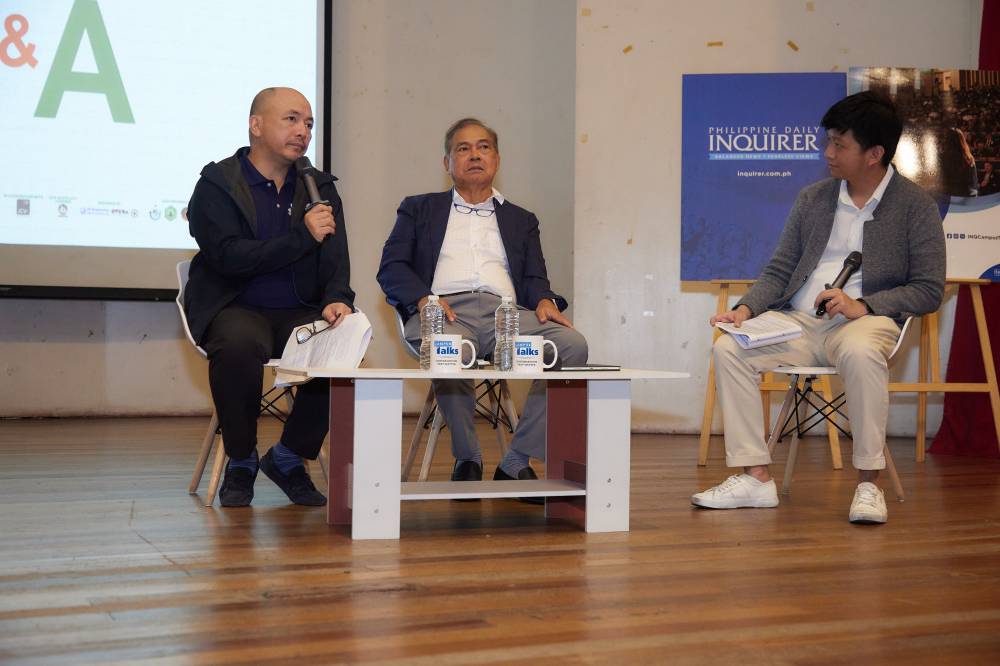
‘Balanced’ energy mix
The country’s power strategy, Maniego said, should aim for resiliency, flexibility and connectivity, among others. For future sustainable development, the goal should be to achieve 100-percent electrification of the country through variable renewable energy.
Suarez said the Philippines should aim for “a balanced energy mix.” With a limited network at present, access should be increased for all regions. “Both transmission and connection grids will have to expand,” he said.
He added that the grid needed a balanced energy source—a hybrid system that would combine both traditional and renewable energy.
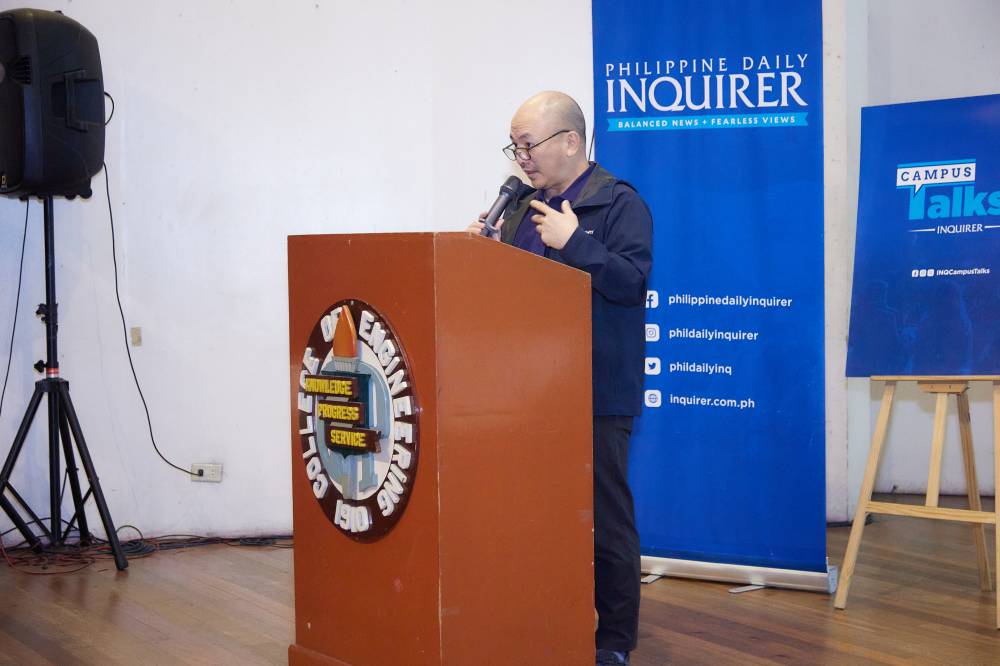
The country would have to invest more in new power services and storage facilities. While declaring his optimism that the country would overcome its energy woes, Suarez said there was also a need for pragmatism, as the infrastructure needed would have a large price tag.
He advocated for diversity as he pointed out, “A diverse system builds resiliency.”
The country’s energy transition, he added, “must be pursued at a pace suitable to local circumstances.”
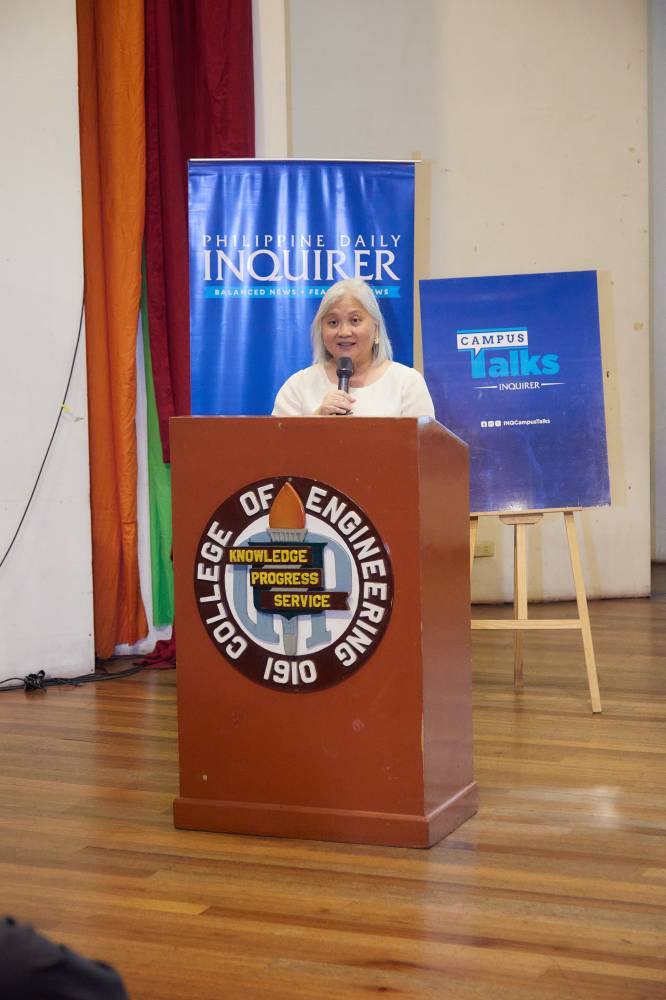
UP College of Engineering Dean Maria Antonia Tanchuling, in brief remarks, said the discussions involved “crucial and urgent topics (the country needed) to survive and thrive.”
She exhorted the young audience to “always think of sustainability and the common good” as future engineers.
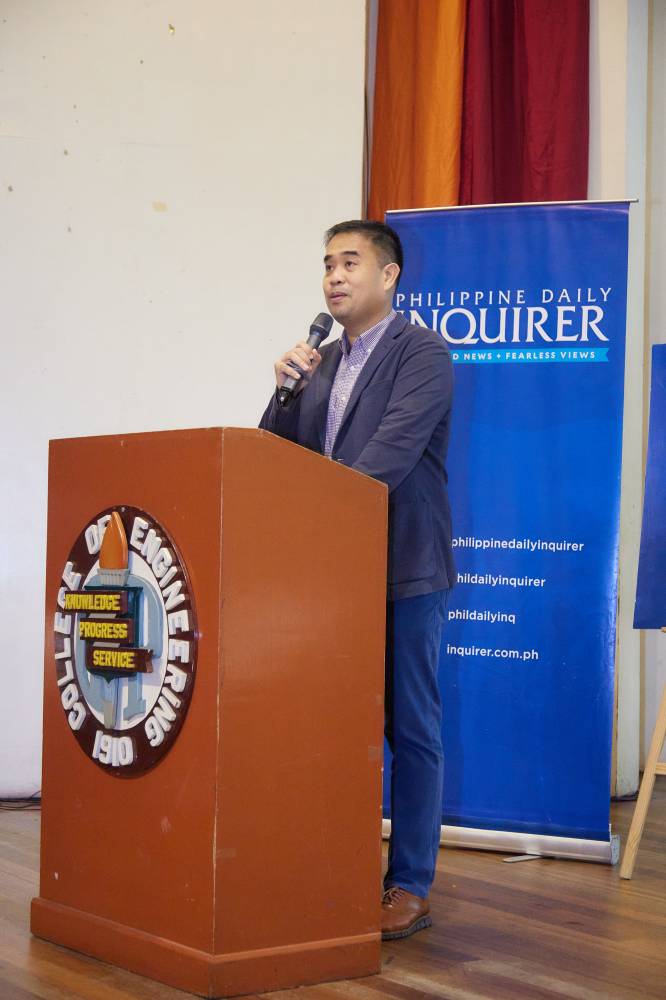
‘Force for sustainable progress’
Crisostomo Canaria, Inquirer commercial director, opened the session by pointing out that “engineering plays a crucial role in addressing global problems.” Engineering could be a force for sustainable progress and for ensuring resiliency.
Inquirer’s Campus Talks program bridges the gap between academe and industry and is designed to be an engaging speaker series to ignite intellectual conversations and inspire students. It invites accomplished business executives, thought leaders and experts from various fields to share their insights, experience and wisdom.
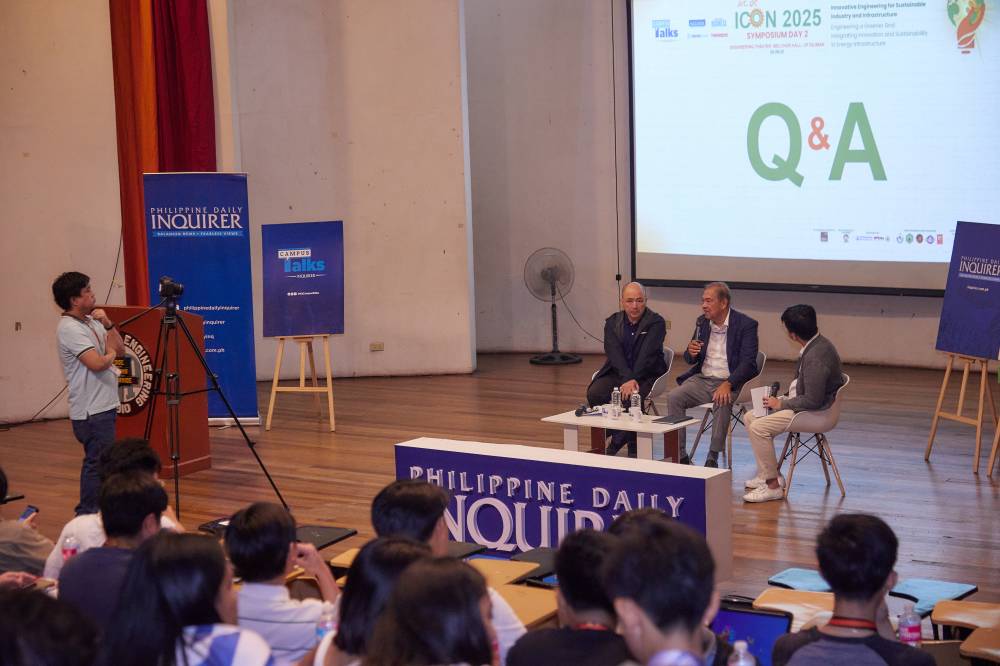
Campus Talks offers an intimate and interactive setting for students to interact with influential speakers, ask questions and gain valuable and practical knowledge to fuel their personal and professional growth.
Through thought-provoking sessions, Campus Talks aims to expose students to a diverse range of perspectives, innovative ideas and success stories. It provides a platform where students can expand their horizons, explore new possibilities, and gain valuable insights from accomplished individuals.
Campus Talks “Innovative Engineering for Sustainable Industry and Infrastructure” edition is presented by Aboitiz and Havaianas.












